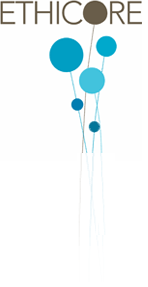Photo by Samuel Zeller on Unsplash
Partnership and innovation require similar mindsets, to explore possibility beyond the limits of our own organisation or existing solutions. Tackling problems to achieve such ambition for transformative change is a stretch. It takes diverse skills and perspectives working together in multi-functional teams. A solutions mindset is key, particularly when balanced with a reflective and openness mindset.
Developing a reflective mindset is critical for excellence in partnership and innovation. Studies have shown that perceiving a supportive feedback environment is linked to greater feedback seeking and higher performance2. Taking time to reflect with colleagues and partners can help explore the dynamics of a partnership. It is important to embrace this feedback and learn from it. Feedback and discussion can expose issues and opportunities; help challenge nascent assumptions and habitual approaches; and make knowledge and attitudes more explicit, making it possible to work on solutions.
Practising an openness mindset with humility and embracing differences in viewpoints, can lead to greater opportunity for innovative ideas, which is essential for transformative partnerships. Indeed, researchers have found that openness to experience is linked to Creativity i . People who welcome feedback and are interested in other points of view, seeing these as a way to find solutions, can build mutual success in relationships. Incorporating the solutions of others and empathising with their perspective helps to make individuals feel valued, as well as enhance partnership and innovation solutions.
A solutions mindset is critical for transformative partnerships and innovation. It challenges us to engage with the experience of participants in programmes or ‘users’, deeply understand problems we are solving and outcomes we are expecting as well as seeking out solutions that are already emerging. When developed alongside a reflective and openness mindset, the following approaches will enable both partnership and innovation:
- NLP researchers propose that the flexibility to move between the levels at which a problem or concept is considered, from the abstract to the detailed or vice versa, can help gain agreement in negotiations and plan projects.
- Embracing heterogeneity to stop ‘group think’ and encouraging participation by local actors.
- Being flexible and adaptive, encouraging openness and adaptation to changing contexts and challenges.
- Taking considered risks: being ready to fail fast and learn.
As partners we need to focus on building solutions and openness mindsets, enabling us to create a fundamental shift in the way we view problems and our ability to innovate.
Follow the series to get an overview of the mindsets for partnership and innovation and delve deep into each mindset for more insights and tools.
Sign up at https://www.ethicore.com/get-in-touch/sign-up/ to receive the series by email.
By Rachael Clay and Jane Thurlow
[i] Schon, D. A. (1983). The reflective practitioner: how professionals think in action (p. 1983). New York: Basic Books.
[2] Whitaker, B. G., Dahling, J. J., & Levy, P. (2007). The development of a feedback environment and role clarity model of job performance. Journal of Management, 33(4), 570-591.

